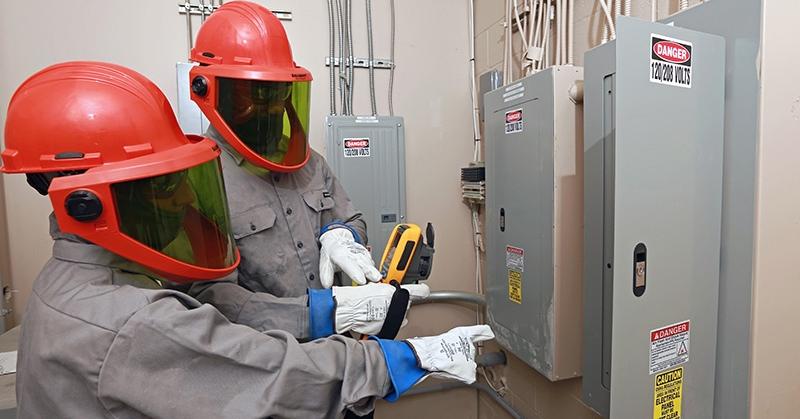The National Fire Protection Association’s (NFPA) 70E certification is a pivotal standard in the electrical safety industry. It puts forth comprehensive guidelines for safe work practices, risk assessment procedures, and the use of personal protective equipment (PPE) appropriately.
The NFPA 70e certification equips electrical workers with the necessary knowledge to maintain workplace safety, but it also assists organizations in adhering to Occupational Safety and Health Administration (OSHA) regulations.
The Importance of NFPA 70E Certification
1: Reducing the Risk of Electrocution and Fires
One of the significant benefits of NFPA 70e certification training is its potential to help workers identify and avoid potential electrical hazards, thereby reducing the risk of electrocution and preventing fires and explosions. This is crucial since electrical hazards can lead to severe injuries or even death, resulting in significant downtime and financial loss for companies.
2: Ensuring Electrical Safety in the Workplace
NFPA 70e certification requirements are vital for ensuring electrical safety in the workplace. By providing necessary training and education, companies can significantly reduce the risk of electrical incidents and provide a safer working environment for their employees.
3: Maintaining Up-To-Date Knowledge
NFPA 70e certification is valid for three years, requiring recertification to ensure your education stays at the top level. This continuous learning process ensures that electrical workers stay up-to-date with the latest safety standards and practices, which can evolve due to technological advancements and new research findings.
Diverse Training Options for NFPA 70E Certification
NFPA 70e certification training is available in various forms, including onsite or online training, first aid training, lockout/tagout training, and electrical maintenance training. These modules are designed to provide a comprehensive understanding of different aspects of electrical safety, enabling workers to prevent accidents and handle emergencies effectively when they arise.
1: Onsite or Online Training
Onsite or online training provides flexibility for workers, allowing them to learn at their own pace and convenience. These courses explain common electrical hazards and how to manage them effectively, making them ideal for electricians and other workers whose job responsibilities may expose them to such risks. If you’re interested in pursuing a career in HVAC and want to explore relevant training options, you can find more information on hvacschools411.com.
2: First Aid Training and Lockout/Tagout Training
First aid training equips workers with the skills to respond to electrical injuries promptly, potentially saving lives. On the other hand, lockout/tagout training focuses on energy control procedures, teaching workers how to shut down electrical equipment during maintenance or repair work safely.
3: Electrical Maintenance Training
Electrical maintenance training is another essential aspect of NFPA 70e certification. It educates workers on maintaining electrical equipment properly and preventing malfunctions that could lead to electrical accidents.
Why NFPA 70E Certification is Essential for Electrical Workers – In Conclusion
Obtaining NFPA 70e certification is a valuable asset for electrical workers and an absolute necessity in today’s workplace. This certification ensures that these workers have comprehensive knowledge and advanced skills to effectively navigate their work environment with the utmost safety measures in place.
By adhering to the guidelines and regulations set forth by NFPA 70e, electrical workers can significantly reduce the risk of accidents, hazards, and potential injuries. Ultimately, this promotes a workplace safety culture and fosters a conducive working environment for all employees involved in electrical operations.






